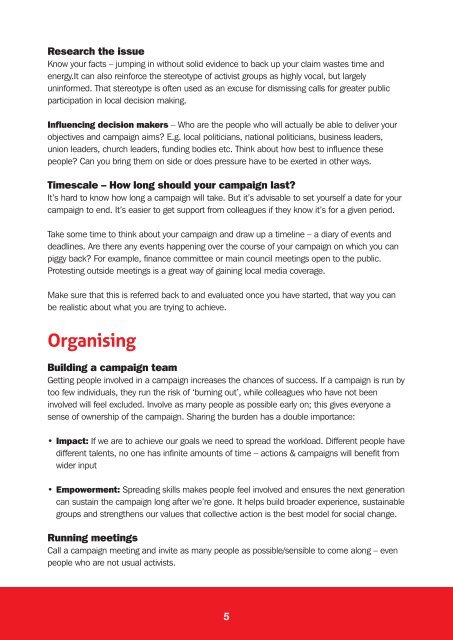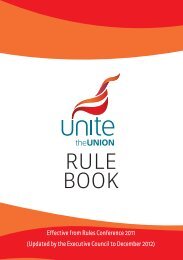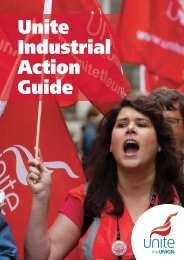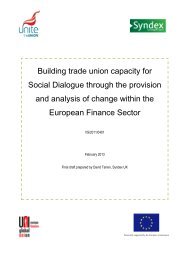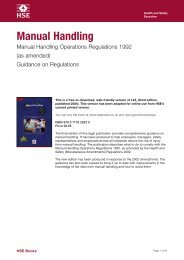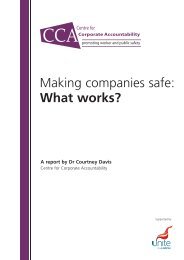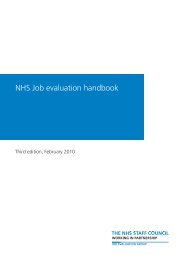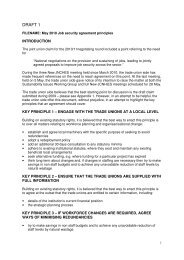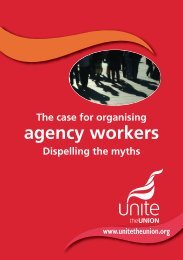Unite guide to campaigning - Unite the Union
Unite guide to campaigning - Unite the Union
Unite guide to campaigning - Unite the Union
You also want an ePaper? Increase the reach of your titles
YUMPU automatically turns print PDFs into web optimized ePapers that Google loves.
Research <strong>the</strong> issue<br />
Know your facts – jumping in without solid evidence <strong>to</strong> back up your claim wastes time and<br />
energy.It can also reinforce <strong>the</strong> stereotype of activist groups as highly vocal, but largely<br />
uninformed. That stereotype is often used as an excuse for dismissing calls for greater public<br />
participation in local decision making.<br />
Influencing decision makers – Who are <strong>the</strong> people who will actually be able <strong>to</strong> deliver your<br />
objectives and campaign aims? E.g. local politicians, national politicians, business leaders,<br />
union leaders, church leaders, funding bodies etc. Think about how best <strong>to</strong> influence <strong>the</strong>se<br />
people? Can you bring <strong>the</strong>m on side or does pressure have <strong>to</strong> be exerted in o<strong>the</strong>r ways.<br />
Timescale – How long should your campaign last?<br />
It’s hard <strong>to</strong> know how long a campaign will take. But it’s advisable <strong>to</strong> set yourself a date for your<br />
campaign <strong>to</strong> end. It’s easier <strong>to</strong> get support from colleagues if <strong>the</strong>y know it’s for a given period.<br />
Take some time <strong>to</strong> think about your campaign and draw up a timeline – a diary of events and<br />
deadlines. Are <strong>the</strong>re any events happening over <strong>the</strong> course of your campaign on which you can<br />
piggy back? For example, finance committee or main council meetings open <strong>to</strong> <strong>the</strong> public.<br />
Protesting outside meetings is a great way of gaining local media coverage.<br />
Make sure that this is referred back <strong>to</strong> and evaluated once you have started, that way you can<br />
be realistic about what you are trying <strong>to</strong> achieve.<br />
Organising<br />
Building a campaign team<br />
Getting people involved in a campaign increases <strong>the</strong> chances of success. If a campaign is run by<br />
<strong>to</strong>o few individuals, <strong>the</strong>y run <strong>the</strong> risk of ‘burning out’, while colleagues who have not been<br />
involved will feel excluded. Involve as many people as possible early on; this gives everyone a<br />
sense of ownership of <strong>the</strong> campaign. Sharing <strong>the</strong> burden has a double importance:<br />
• Impact: If we are <strong>to</strong> achieve our goals we need <strong>to</strong> spread <strong>the</strong> workload. Different people have<br />
different talents, no one has infinite amounts of time – actions & campaigns will benefit from<br />
wider input<br />
• Empowerment: Spreading skills makes people feel involved and ensures <strong>the</strong> next generation<br />
can sustain <strong>the</strong> campaign long after we’re gone. It helps build broader experience, sustainable<br />
groups and streng<strong>the</strong>ns our values that collective action is <strong>the</strong> best model for social change.<br />
Running meetings<br />
Call a campaign meeting and invite as many people as possible/sensible <strong>to</strong> come along – even<br />
people who are not usual activists.<br />
5


